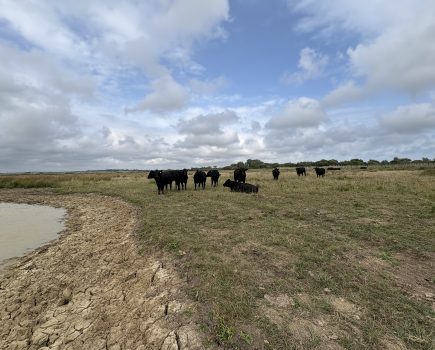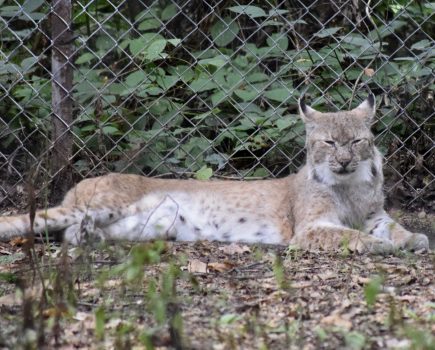As I write this, we’ve yet to start the combine, but I’m not optimistic. The crops look short and thin, thanks to a series of spring and summer heat waves and a general shortage of rain. My basic payments have been cut to shreds this year, and my arable acres are not entered into a sustainable farming incentive scheme. New crop wheat off the combine is disastrous at £155 per tonne. Reasons to be cheerful about being an arable farmer at the moment? None.
Things would have been worse without two vital rains in May and June, but this is just another reminder of how vulnerable arable farming is becoming because of climate change. The Met Office now says the UK is warming by 0.25°C per decade. This is why we now hardly ever get frost, hardly ever get a summer without a series of heat waves, and why, when it does start to rain in the autumn, it hardly knows when to stop.
I am not the only arable farmer currently feeling the pressure from a combination of unfavourable weather and economics. Farm business consultant Andersons’ 600-hectare virtual ‘Regen Farm’ is also experiencing hard times.
Like my farm, it has one full-time worker and a bit of help at harvest. Like my farm, Regen Farm is on grade three soil and doing its best to keep cultivations to a minimum to improve soil structure and moisture retention. And, yes, like my farm, it will likely experience a negative margin (£95 p/ha) from its farming activities this year unless there is a sudden improvement in arable commodity prices.
Speaking at Groundswell, Sebastian Graff-Baker, a partner at Andersons, said that arable farming prospects were the “most negative since the early 2000s”.
So, what to do? Apart from sell up (Andersons predict a lot of farmers will do just that in the next five years), one of the few short-term economies available to arable farmers is to postpone machinery purchases. And that, it seems, is exactly what many growers are doing. New tractor registrations hit a 26-year low in 2024, with only 10,241 units sold for the whole of the UK. This alarming trend has continued apace in the first half of 2025, with sales of tractors over 240hp – which are mostly sold to arable farmers – down a whopping 33%.
So, yes, there is, after all, a reason to be cheerful about being an arable farmer at the moment. At least, I’m not a tractor salesman.
For more like this, sign up for the FREE South East Farmer e-newsletter here and receive all the latest farming news, reviews and insight straight to your inbox.







